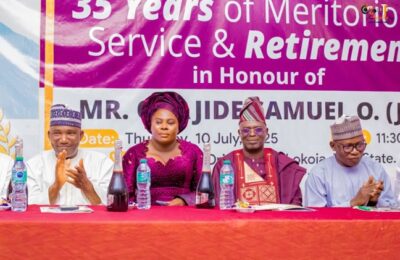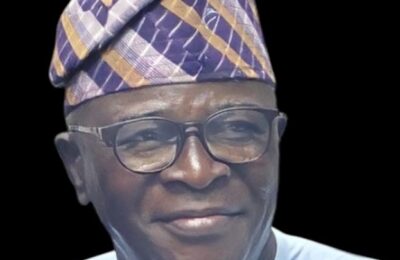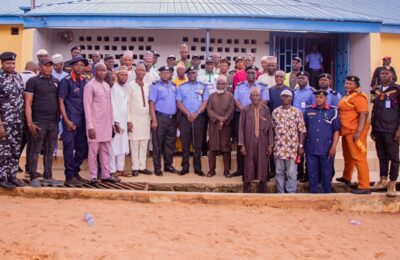Kogi State is reputed as the state in Nigeria where the ‘Iron of Liberty’ is found .The Iron of Liberty is a spot where slaves were freed at the end of the slave trade in 1860.
The state is reported to have three main ethnic groups and languages. They are the Igala, Ebira, and Okun (a Yoruba group). It is also said to have other minorities like the Ogugu subgroup of the Kakanda, Igala, Gwari and Oworo people, Bassa, a small fraction of Nupe mainly in Lokoja, the Eggan community under Lokoja Local Government and the Ogori Magongo.
The abolition of slave trade by the British government in the 19th Century led to the enforcement of the Slave Trade Abolition Act. The West African Frontier Force had after the abolition of slave trade mounted surveillance squads on Rivers Niger and Benue to secure the routes against any possible violation of the Act.
The squad reportedly captured many barges with slaves on board and forced the vessels to berth at the dockyard while the slaves were rescued from the slave merchants.
The seized slaves were then led to the Iron of Liberty where two iron poles were erected. The slaves were then instructed to touch them to regain their freedom. Any slave who escaped from his master and touched the Iron of Liberty in the now Kogi State automatically regained his freedom.
It is therefore quite surprising that a state that played host to freed slaves could in the present modern world still harbour in some of its communities people who are regarded as slaves or euphemistically put, second class citizens.

Our correspondent learnt that the second class citizen status is still being observed though latent, in some areas in Kabba, Okene and part of Ijumu Local Government Area such as Iyara, Ogidi and some other neighbouring communities.
A major challenge our correspondent encountered in the course of investigating this happenstance is that though those so labelled are aggrieved, many of them shy away from discussing the topic or even accepting its practice.
One of the people who would not want to acknowledge the existence of such practice is President, Ogidi Development Association, Mr. Tunde Ipinmisho. In a telephone interview with our correspondent, he vehemently denied the practice of second class citizen in his area even though the Ologidi of Ogidiland in Ijumu Local Government Area, Oba Rabiu Sule, confirmed the existence of such practice in his domain and other neighbouring communities. He however noted that it was no longer pronounced.
To get the Obaro of Kabba, Oba Michael Folorunso to talk on such a practice was a herculean task.
The palace secretary, Mr. Raphael Tobasie, told our correspondent who visited the palace that the monarch would not want to talk with journalists till July. When reminded of the importance of the story and the need for the royal father to respond, he asked our correspondent to call back two days after. When our correspondent called back, he said he would deliver the message to the monarch.
But a prominent member of Kabba community who pleaded anonymity because of the sensitive nature of the matter confirmed the existence of second class citizens in the area.
According to him, in Ibiraland, they are called anihere as they are believed to be settlers who came from the blacksmith people in the now Edo State. He added that the indigenes do not regard them as real citizens.
He said the matter had generated a lot of crises such that one of the chiefs in Okene took the matter to the Federal High Court. He claimed that the matter had been decided.
He also noted that the case was so serious in Kabba that there had been about two or three riots linked to such classification.
“It is a subtle crisis. It caused a lot of problems but people outside will not know. But within Kabba, the indigenes know. They do not intermarry. They call them Idi-amori (in Yoruba meaning the source we do not know). But they prefer to be called omo-odo, that is, people from downside.
“There should have been 14 clans in Kabba but there are 13. The 14th clan would have been the Idiamori but they do not regard them as a clan because they see them as slaves from other clans,” he said.
According to him, in Kabba especially, the ruling class is referred to as people of royal blood as the Obaro Kabba is from Ilajo royal family. He added that the Ilajo royal family had produced between 15 and 20 monarchs called Obaro since about 1691.
He stated that residents were segmented in their own clans.
According to him, the people referred to as slaves or second class citizens, who he said are called Idi-amori, normally fight along with the Ilajo, the royal people, because they believe that they are the ones that brought them into the town.
The source said that anytime there was a crisis, the people termed as second class citizens always teamed up with the royal family to fight against the other people. He added that the so-called second class citizens were reputed to be fetish, such that other people fear them.
“But they are not accepted in the family. For example, if you are from the royal family, you cannot marry them. If you marry them, it means when your turn comes to become a king, you cannot become a king.
“In Kabba, those people regarded as second class citizens do not have land unlike every other family. The Idiamori do not have family land. They cannot lay claim to any family land. If they want to have land, they have to buy, just as strangers buy. The real citizens do not marry them.
“In those days, when you married them, you were termed as part of them. But now, if you marry them, socially they are integrated to some level but not as much. In the olden days, one could not marry them at all or even befriend them,” he said.
According to him, in Kabba, there are two deities: the Oro (ebora deity) and the masquerade. He stated that the Oro deity is the one being worshipped by the ‘real indigenes,’ adding that history has it that the masquerade was given to the Idiamori.
He added that those who worship masquerade belong to Idamori and in the olden days, were not entitled to wear the crown. He said they had chiefs that were called olu while that of the indigenes are called Oba. The source noted that by that, people would know that they were not indigenes.
The second class citizens are common in Odo-Akate, Bolorunduro Street and Yara, all in Kabba.
“In Kabba we have some neighbouring villages that are about 22 or thereabout. They are scattered in all those places but they are more pronounced in Kabba. Their titular head is called Elesho or Otu,” he said.
Our correspondent learnt that modern day slavery and discrimination thrive in these communities as they are not allowed to marry the ‘real’ indigenes of the sate, cannot participate in traditional ceremonies and are not allowed to contest for political positions.
According to him, when a king was chosen in the olden days, the second class citizens would go to a certain mountain and announce that a king had been appointed because they regarded them as slaves or messengers. He added that the practice is still on till date.
He said that any king these so called slaves do not announce will not be termed a proper king.
“We have cognomen which we call Oriki. They also use the cognomen of those who brought them as slaves so to speak. For instance, the royal family in Ilajo, their Oriki is called Omoehi. In other two clans, we have for instance the omo-aro etc.
“So they too, wherever they find themselves, they put such cognomen to their names but when it comes to real Kabba issues, they have no say. They are even discriminated against and marginalised politically. A prominent son of the Idi-amori clan who wanted to contest a particular office in 2007 was denied such an opportunity. It was alleged that the now late political leader of the area told him pointedly that he was acceptable to him but he could not present him to the community because of his ancestral background,” he said.
The source said that another way of discriminating against them is the observance of traditional festivals.
According to him, there is the Oro festival in which people do not go out. He noted that, however, initiated male children who are indigenes of Kabba are entitled to come out.
He also said that the second class citizens are not permitted to come out and would not be initiated into the group as they are regarded as not belonging to that area.
He stated that this issue had generated crisis in the area.
According to him, some of the second class citizens who insisted on coming out to observe the Oro had attracted calamities to themselves. He said they either died or ran mad within seven days.
The source added, “Each time there is an Oro festival, some of their boys will want to come out. In the olden days, elders did not fight them but madness or other terrible things would happen to them if they came out.
“Two years ago, they came out and insisted by force they must see the Oro because they believed that they were part of Kabba. It generated a lot of crisis. Because of that, the state government banned the Oro festival and their own festival called Abo or masquerade, which normally comes up every December 27 or 28. It is a kind of entertainment feast. People will come; even the Obaro will be there. He will give them cows and they will dance and entertain themselves and the audience.
“During the Oro which belongs to indigenes, people will ascend to the mountains. Kabba is full of hills or mountains. It is a seven-day event but in the first and second days, they will come down. While coming down, it is normally announced that the Oro festival wants to pass through the town. So people will stay indoors maybe from 8am to noon and from 1pm to 5pm, the Oro will pass.”
He pointed out because the Idi-amori boys now want to observe the Oro festival by force, government had directed people to restrict the observance of their festivals to their area of abode.
He claimed that in the olden days, the masquerade could not go to the palace of the Obaro and anyone that defied that would die there. He said that the masquerade still does not enter the Obaro palace.
The prominent member of Kabba community also said that there is currently the issue of grading of their traditional rulers.
According to him, the traditional rulers of the Idi-amori are yet to be graded, stating that the state government had set up a committee to look into the issue.
But he said that Kabba people will always rise and kick against such grading because of the notion that they are not real chiefs.
The Ologidi of Ogidi-land, Oba Rabiu Sule gave credence to the existence of segregation against those who are regarded as second class citizens in some areas in Kogi State.
The Oba said the Ogidi community had been in existence for over 200 years.
According to him, historically, members of the community are Yorubas and migrated to the community from Ile-Ife.
He said there are two ruling houses in the community: the Ilaare Ruling House which he belongs to and Itaji Ruling House.
“From Ilaare Ruling House, we have had about six oba and Itaji Ruling House about seven consecutively. There has not been any problem. Those who are agitating thought they could become an oba which is not in our history,” Sule said.
The oba confirmed existence of real segregation of indigenes and the slaves or second class citizens in the community and in some other neighbouring places in the state.
“It is true, there is segregation in some communities where natives are still regarded as slaves but I have cancelled it entirely from my kingdom. It is no longer in my community. We are all human beings. We met ourselves here.
“In those days, the Nupe war that we fought around this area ended in this community because we are warriors. When the Nupe war came, there were still people that were left behind. So people were thinking that those people were slaves but they are not slaves. I have cancelled that.
“The war started in 1887 and ended in 1894. It was a serious war. Everybody knows about this war in this area. The Nupe came to fight us. We won the war and we drove them away.
“The practice was that those who they called slaves could not take up higher chieftaincy titles. They could not marry from those who called themselves indigenes. But now, they can intermarry. We now do things together. They can take up chieftaincy titles and so on.
“There are other areas with such practice. It is all over this area. It is rampant in this area. We have it in Kabba; we have it in Yara and another community very close to us. It is all over,” the monarch said.
Oba Sule stated that though he had abolished the practice in his domain, there were people who were still insisting on such obnoxious practice.
He, however, claimed that such people were in the minority.
He stated that he was able to reduce the prevalence of such practice in his domain by preaching and enlightening his subjects that they are all human beings.
He added that he normally quoted the Bible and the Quoran to convince his subjects that all human beings are created by God and so are equal and should be regarded as such.
He admonished people in areas where such dehumanising practice is still being observed to stop it and embrace the equality status of all mankind.
“I will still continue to preach to them that we are all human beings; that God created Adam and Eve and that was the beginning of this world. That means we are one.
“For other communities that are still engaging in such obnoxious practice, my advice is that they should erase it and preach peace and development.
“When you classify some as freeborns and slaves in a community, those who are regarded as slaves will feel bad and they would not contribute much to the development of that community. But if you come together and preach to them to become one, there will be development,” Sule said.
The Kogi State Deputy Governor, Mr. Yomi Awoniyi said the state government does not recognise labelling some residents as slaves or second class citizens.
According to him, all the citizens are equal and have equal access to government programmes and public amenities.
He said that in some, “communities maybe by genealogy or cultural acceptance, there may be some caste systems in some places.”
He, however stated that the government by policy does not recognise caste system.
Awoniyi said, “Honestly for me, you need to educate me more because I am hearing this for the first time and I am not new to the wiles or nuisances of our communities.
“For you to declare that there are second class citizens or slaves that are institutionally labelled as such, believe me, I am not aware. I do not know what obtains in the inner recesses of some communities.
“Maybe by genealogy or cultural acceptance, there may be some caste systems in some places but that is not a policy of government to recognise that. Everybody has equal access to government amenities and provisions. Government policies do not recognise second class citizens or slaves. I can assure you of that.”




